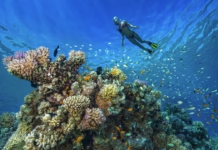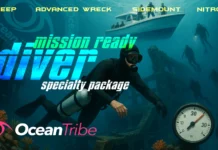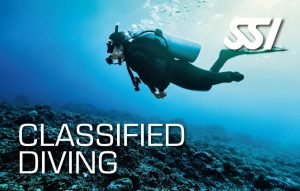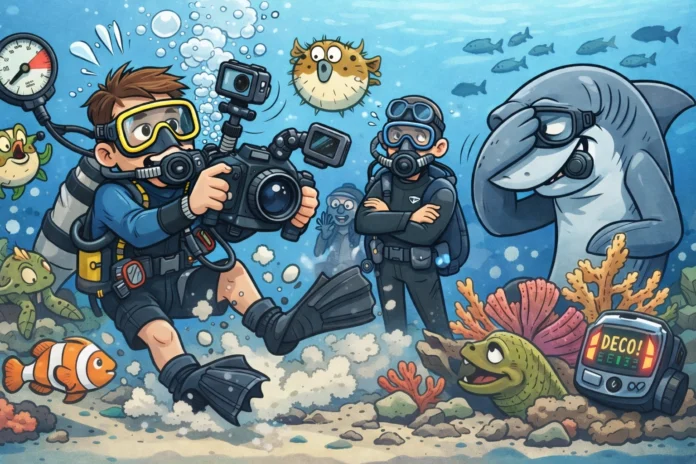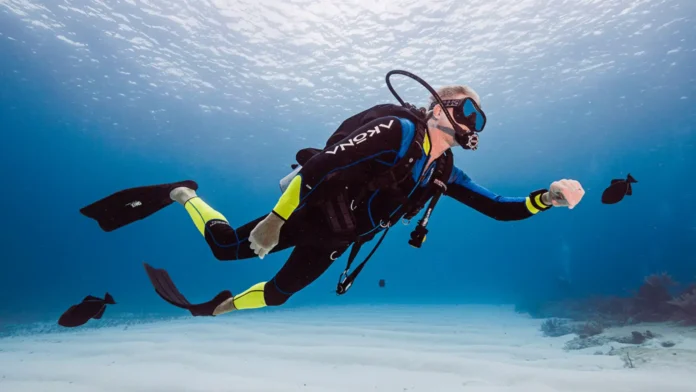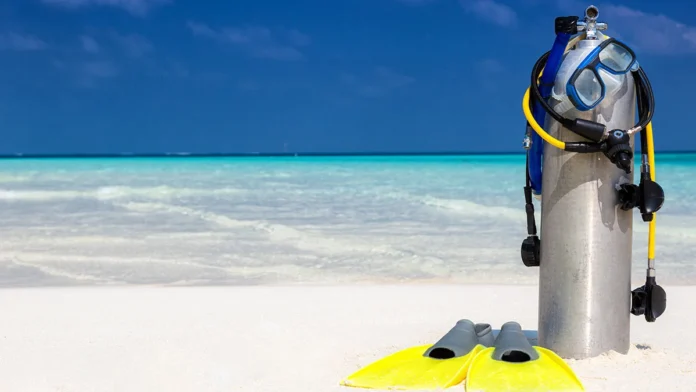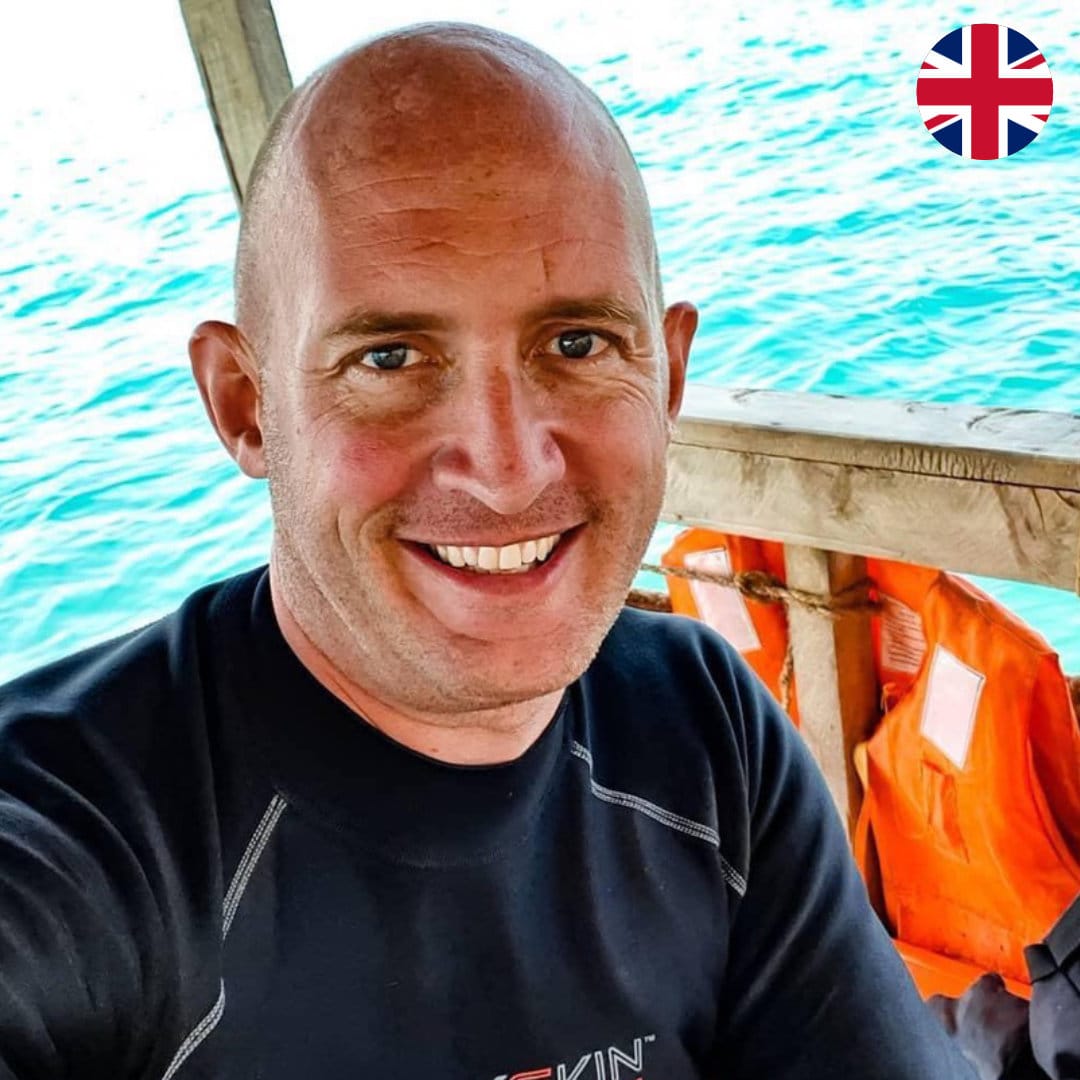Choosing the right dive centre is one of the most important decisions you can make as a diver. Whether you are planning your first scuba course or an advanced dive holiday, the right choice means safety, good training, and a great experience. Here are the key things to look for when choosing where to dive.
Is the dive centre verified by a training agency and to what rating?
Start by checking if the dive centre is officially verified by a recognised training agency such as SSI, PADI, RAID, or NAUI. Each agency awards ratings that reflect the professionalism and training quality of a centre. An SSI Diamond Dive Centre or a PADI 5-Star IDC Centre has proven it meets high standards in education, safety, and customer service.
You can confirm their verification through the agency’s website or by asking to see their certification displayed at the dive centre.
Are all of the dive professionals on staff renewed and current, and to what level?
Even if the centre itself is certified, the dive staff must also be current members of their training agencies. Active status means they are insured, have renewed their membership, and are up to date with the latest safety and teaching standards.
Ask what levels their team members hold. A centre with Instructor Trainers, Course Directors, or experienced staff mentors is often a sign of depth and experience.
What is the dive equipment like? What is the air filling station like? Can you sample the air?
Look carefully at the condition of the dive gear. Good centres maintain clean, modern, and well-serviced equipment. Regulators should be regularly serviced, BCDs should hold air properly, and wetsuits should be rinsed and stored correctly.
The air filling station is just as important. Cylinders must be inspected and hydro-tested on schedule. The compressor area should be tidy and well ventilated. Filters must be changed regularly, and you should be able to sample the air. It should smell and taste clean, never oily or musty.
Do they have a safety protocol you can see with an emergency action plan?
Every professional dive centre should have a clear written Emergency Action Plan (EAP). This plan outlines what to do in case of an accident, who to contact, and the location of the nearest recompression chamber.
Do not hesitate to ask to see it. A professional team will be happy to explain how it works and show you their emergency oxygen, first aid kit, and communication systems.
Are you able to view the agency standards for the program you are looking to take?
Training standards should never be secret. Any professional centre will let you view the official course standards so you know exactly what is covered and what you must achieve to pass.
If you are learning with SSI, you can view all training standards in the MySSI app. This transparency ensures that both the instructor and the student understand what is expected during training.
Do they ask to see your dive certification and dive log, and what are their procedures for a skills update?
A responsible dive centre will always check your certification and dive log. This helps them assess your experience level and comfort in the water.
If you have not dived recently, they should suggest a skills refresher or check dive. This is for your safety and ensures you are confident before attempting deeper or more advanced dives.
What dive sites will they be visiting and are they suitable for your level of diving?
Ask which dive sites they plan to visit and make sure they are suitable for your level of experience. Beginners should start with calm, shallow reef dives, while more advanced divers may enjoy wrecks or deeper drift dives.
A good centre will match dive sites to divers’ skills and conditions rather than just choosing the most convenient option.
How big are their dive groups per dive leader and their boat capacity?
Group size affects both your safety and enjoyment. Smaller groups allow more personal attention and easier supervision underwater. Ideally, there should be no more than four to six divers per guide.
Also check the dive boat. It should have enough shade, space for equipment, emergency oxygen, and a first aid kit. Overcrowded or poorly equipped boats are warning signs.
Are they polite and approachable and seem knowledgeable about scuba diving and the dive trips and courses available?
A good dive team should be friendly, approachable, and confident in what they do. You should feel comfortable asking questions about equipment, dive sites, or training programs.
Knowledgeable staff who enjoy sharing their experience create a positive and safe learning environment. If they seem uninterested or impatient, that is not a good sign.
What is included in their package price? Are there any hidden charges?
Once you have checked everything else, look at the price. Make sure you understand exactly what is included. Does it cover equipment rental, boat transport, certification fees, and marine park charges?
A cheaper price may not be better if it hides extra costs. Compare what each centre includes before deciding.
In summary
Notice that none of these points, until the last one, mention price. That is because price alone does not show how safe, professional, or well-run a dive centre is.
The best dive centres follow training standards properly, keep their staff current, maintain reliable equipment, and have clear safety procedures. So choosing a dive centre is very important. When a centre meets these standards, you are not just paying for a dive, you are paying for confidence, safety, and quality underwater.







